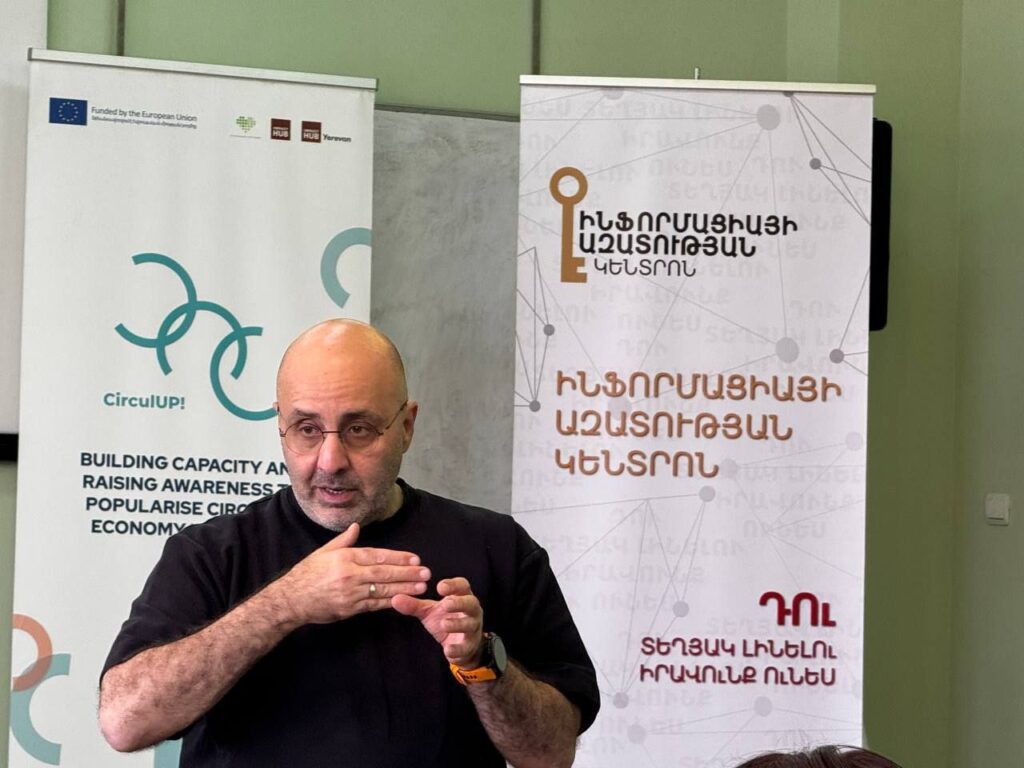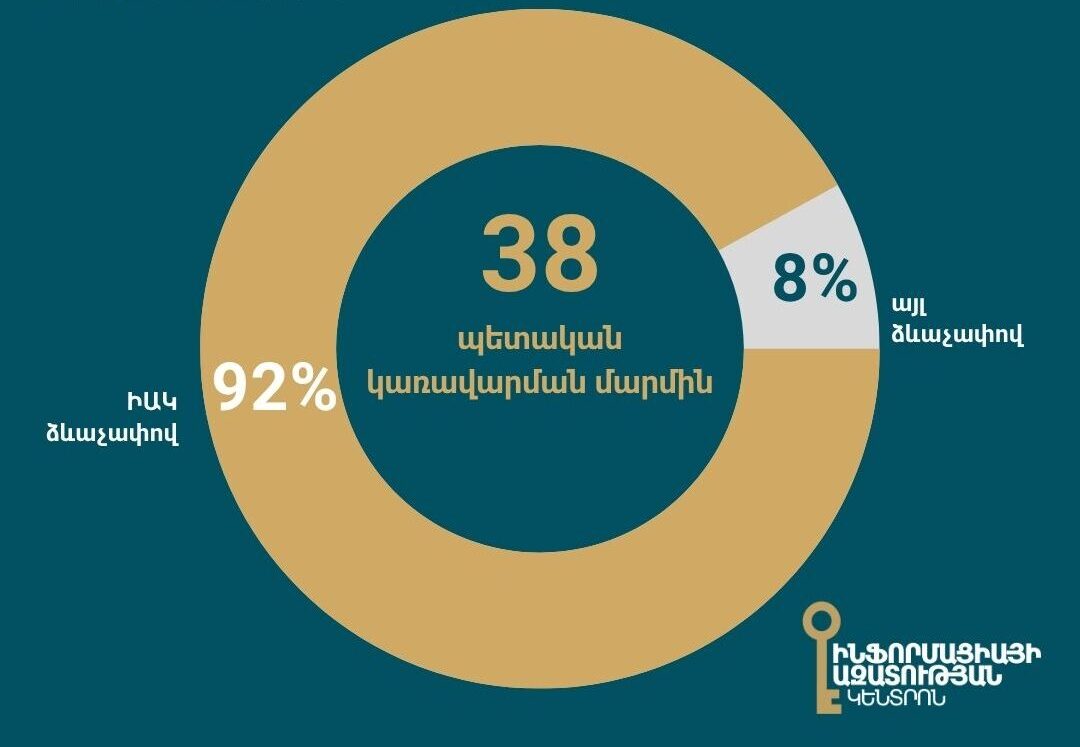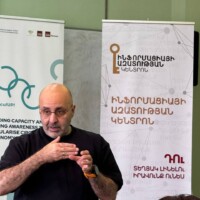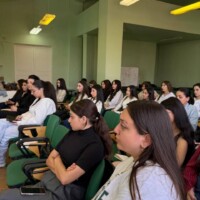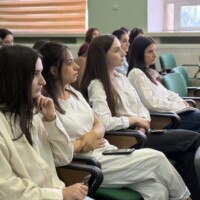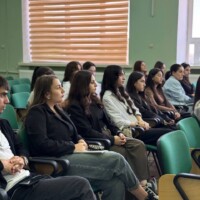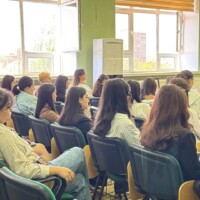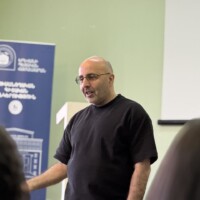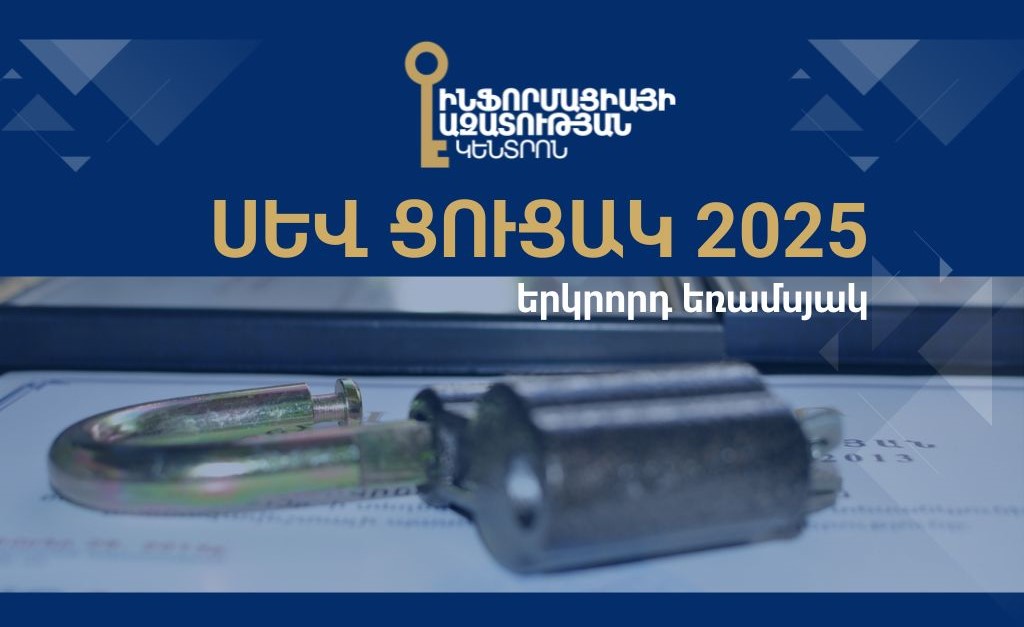Yerevan State University students hosted Tiigran Jrbashyan, a member of the Circular Economy Coalition in Armenia. The topic of the meeting, organized in cooperation with the Freedom of Information Center and YSU faculty student scientific societies, was the circular economy.
Yerevan State University students hosted Tiigran Jrbashyan, a member of the Circular Economy Coalition in Armenia. The meeting, organized in cooperation with the Freedom of Information Center and YSU faculty student scientific societies, focused on the topic of the circular economy.
On September 29, at the initiative of the Freedom of Information Center, an interdisciplinary meeting was held at Yerevan State University, the goal of which was to present to students the processes aimed at introducing a circular economy system in Armenia, its importance in the development vision of Armenia in the context of both environmental and economic, as well as security, public governance and communication, outlining the need to integrate this topic in different disciplines.
Around 30 students from the Faculties of Journalism, Economics and Management, International Relations, and Geography and Geology at Yerevan State University took part in the meeting with members of Armenia’s Circular Economy Coalition. The main speaker of the discussion was Tigran Jrbashyan, Partner at “Ameria” Advisory Company, Director of Management Advisory Services, and Member of the Armenian Circular Economy Coalition,
At the beginning of the meeting, Mane Madoyan, Program Coordinator of the Freedom of Information Center, briefly presented the goals and mechanisms of the creation of a circular economy coalition in Armenia, then touched on the importance of presenting the topic to students interested in science and collaborating with them.
During the meeting, Tigran Jrbashyan presented the main prerequisites and directions for the development of a circular economy in Armenia, the problems and opportunities related to them. “Circularity not only requires a separate strategy, but there is also a problem of introducing it into different sectors. At this stage, the Armenian government is still considering circularity mainly only in the context of a green and sustainable economy. At the same time, there are a number of approaches in Europe that are just developing, while in Armenia they are already widespread due to the need to save resources, although they are not perceived as circular,” Tigran Jrbashyan emphasized.
Speaking about the importance of integrating the topic of circular economy in scientific studies, Mr. Jrbashyan noted that the topic requires scientific innovation, therefore it has the potential for development not only in the natural sciences, but also in the social aspect. The speaker emphasized that it is important that natural and technical science are not directly based on the needs of national business, since their artificial interconnection can reduce mutual competitiveness: business is looking for an effective solution regardless of the territory, and the scientific community must create solutions whose applicability will not be limited only to the borders of Armenia. At the same time, the expert notes that in the context of a socio-scientific product, the work of scientists is largely interconnected with internal processes.
Siranush Baghumyan, President of the YSU Student Scientific Society, highlighting the cooperation of YSU faculty SSSs around the topic of circular economy, expressed hope that the Student Scientific Society could become the very platform where students interested in circular economy would be able to meet, connect, and begin exploring it in the context of multiple disciplines.
Summing up the meeting, Mane Madoyan, Program Coordinator at the Freedom of Information Center, noted that the main goal was to “infect” students with the idea of circularity. “I believe the discussion with Jrbashyan also helped to understand how many new opportunities circularity opens up for the academic community itself. If, in conducting research, you consider circularity as yet another perspective for approaching questions, you will gain the opportunity to create entirely new value in terms of content,” Madoyan emphasized.
The initiative of the Freedom of Information Center is made possible thanks to the EU-supported grant as part of the CirculUP! The project, which is led by the Impact Hub Network, Impact Hub Yerevan, and the Environment and Health NGO, is funded by the European Union in Armenia.

